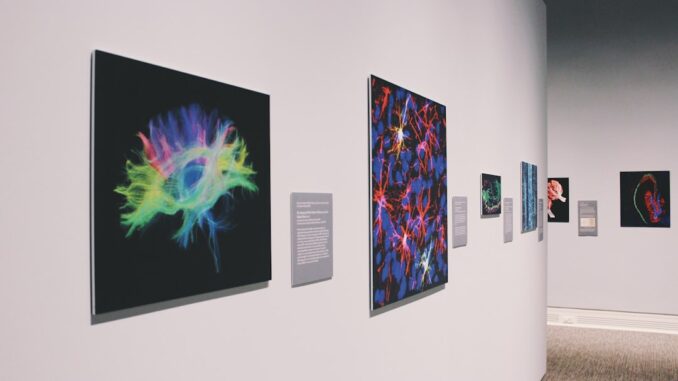
Summary
This article explores recent breakthroughs in brain-inspired AI and their transformative impact on healthcare. From enhancing medical imaging to accelerating drug discovery, these advancements are poised to revolutionize diagnostics, treatment, and overall patient care. These developments highlight the growing synergy between neuroscience and AI, promising a future where medical solutions are faster, more accurate, and personalized.
Healthcare data growth can be overwhelming scale effortlessly with TrueNAS by Esdebe.
** Main Story**
Brain-inspired artificial intelligence (AI) is rapidly changing healthcare. Scientists are developing AI systems that mimic the human brain’s structure and function, leading to innovative applications in medical imaging, drug discovery, and personalized medicine. This article explores these advancements and the transformative potential they hold for the future of healthcare. As of today, May 7, 2025, these advancements are rapidly evolving, and future developments will further shape their impact on the healthcare industry.
Mimicking the Brain’s Visual Cortex
One remarkable breakthrough is the development of Lp-Convolution, an AI technique modeled after the human brain’s visual cortex. Unlike conventional Convolutional Neural Networks (CNNs), which employ fixed square filters to process images, Lp-Convolution uses dynamically adjusting filter shapes. This allows AI to focus on relevant image details more effectively, mirroring the brain’s ability to process visual information selectively. This advancement enhances flexibility and performance in machine vision systems and addresses the limitations of traditional large-kernel CNNs. Lp-Convolution has significant implications for various real-time applications, including medical imaging, autonomous driving, and robotics. By mimicking the brain’s smooth and adaptive neural connectivity patterns, Lp-Convolution promises greater accuracy and efficiency in image recognition tasks.
Neuromorphic Computing: A Scalable and Efficient Solution
Another significant leap forward is in neuromorphic computing, which involves designing systems that integrate memory and computation within the same hardware. Researchers have demonstrated that a single silicon transistor can mimic neural and synaptic behaviors, bringing brain-inspired computing closer to reality. This offers a scalable, energy-efficient solution for artificial neural networks (ANNs), overcoming limitations of traditional software-based ANNs that require extensive computational resources. This breakthrough paves the way for efficient and practical AI applications in various fields, including healthcare.
AI-Driven Medical Devices and Diagnostics
AI is also transforming medical devices and sensors. The integration of AI into these devices provides continuous diagnostics and monitoring, enabling early disease detection and timely treatments. Examples include mobile ultrasound devices, compact devices for assessing skin lesions, and smart blood glucose sensors that dynamically adjust insulin doses. These innovations empower primary care physicians with advanced diagnostic capabilities without needing specialist referrals.
Accelerating Drug Discovery and Development
AI is poised to tackle significant challenges in pharmaceutical research and development, such as lengthy timelines and high failure rates. AI solutions enhance hit identification by predicting drug-target interactions, saving time and reducing experimental validation costs. Generative AI plays a crucial role in antibody design and in-silico clinical trials using human digital twins. Early results show promise in predicting clinical trial outcomes with impressive accuracy, accelerating the development of AI-designed chemical molecules.
AI’s Expanding Role in Healthcare
AI’s impact on healthcare extends to various other areas. AI algorithms can analyze brain scans with greater accuracy than human professionals, offering improved diagnostics for stroke patients. AI-powered machine learning models can detect early signs of various diseases before symptom onset, enabling proactive and preventative care. Furthermore, AI co-pilots can alleviate administrative burdens, freeing clinicians to focus on patient care. Clinical chatbots are emerging as valuable tools for guiding healthcare decisions.
Challenges and Future Directions
While brain-inspired AI holds enormous promise, challenges remain. Regulation needs to keep pace with rapid advancements to ensure responsible development and deployment. New financing models for innovative therapies and preventative care are essential. Educating healthcare leaders about emerging AI technologies and investing in training medical personnel are crucial for successful integration into existing healthcare systems. Addressing these challenges will pave the way for fully realizing AI’s transformative potential in healthcare.


Considering the article’s focus on brain-inspired AI, how might these technologies be applied to enhance mental healthcare, specifically in areas like personalized therapy or early detection of mental health conditions?
That’s a fantastic point! The potential for brain-inspired AI in mental healthcare is huge. Imagine AI analyzing subtle speech or facial cues during therapy sessions to personalize treatment in real-time. Early detection through AI-powered analysis of digital footprints is also incredibly promising and preventative. Thanks for sparking this important discussion!
Editor: MedTechNews.Uk
Thank you to our Sponsor Esdebe
AI-driven medical devices that dynamically adjust treatments, eh? Finally, a sensor smart enough to understand my chocolate cravings aren’t just “low blood sugar.”
Haha, I love that! It’s exciting to think about AI understanding those nuances beyond the data. Imagine personalized nutrition plans guided by cravings, not just numbers. Maybe AI could suggest dark chocolate with sea salt when it detects a craving and knows you need a little pick-me-up!
Editor: MedTechNews.Uk
Thank you to our Sponsor Esdebe
AI co-pilots alleviating administrative burdens? Finally, someone’s addressing the real epidemic in healthcare! Now, if only AI could handle those endless insurance claim denials, *that* would be truly revolutionary.
That’s a fantastic idea! AI tackling insurance claim denials would indeed be a game-changer. Imagine the time and resources saved, allowing healthcare professionals to focus even more on patient care. Perhaps AI could even identify patterns in denials to help providers improve their processes. Thank you for this great contribution!
Editor: MedTechNews.Uk
Thank you to our Sponsor Esdebe
Regarding AI’s role in drug discovery, could these “human digital twins” also be leveraged to personalize drug dosages, considering individual genetic and physiological variations that impact drug metabolism and efficacy?
That’s a brilliant question! Using human digital twins to personalize drug dosages based on individual genetic and physiological variations is definitely a promising avenue. Imagine the impact on minimizing side effects and maximizing treatment effectiveness. This is definitely the future of personalized medicine!
Editor: MedTechNews.Uk
Thank you to our Sponsor Esdebe